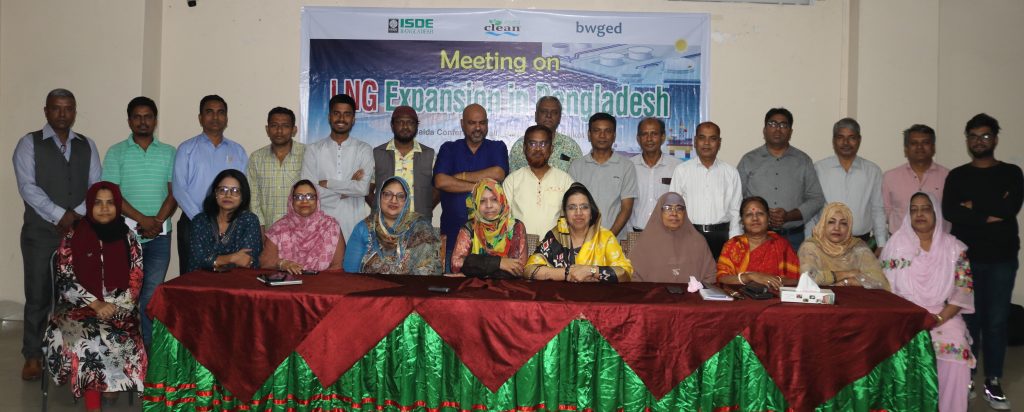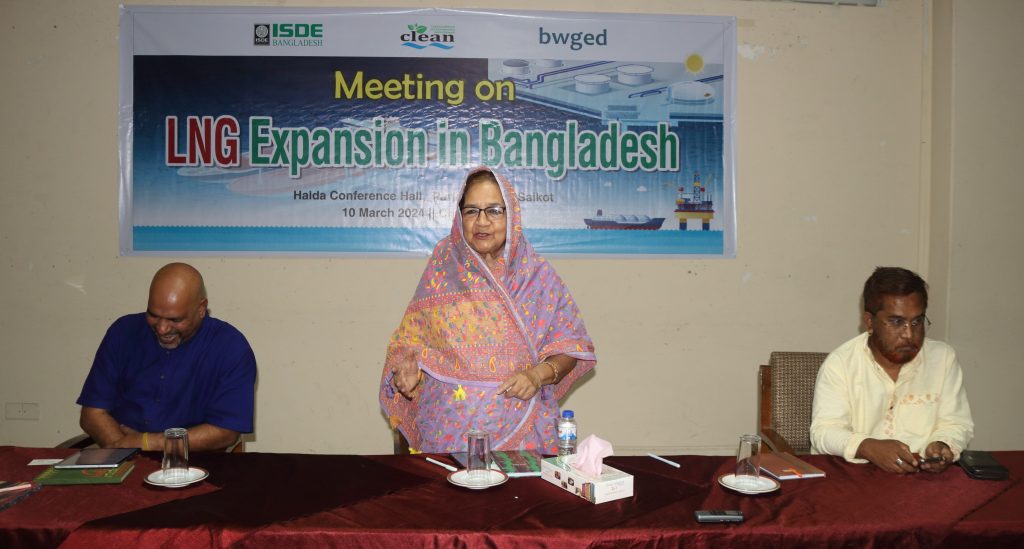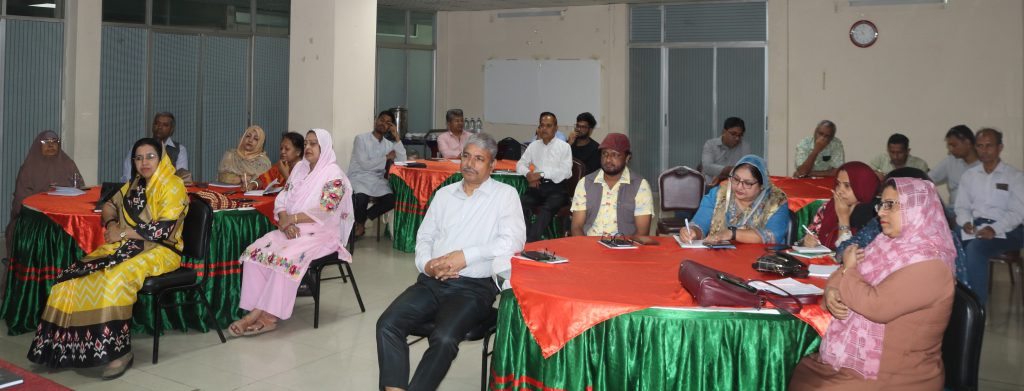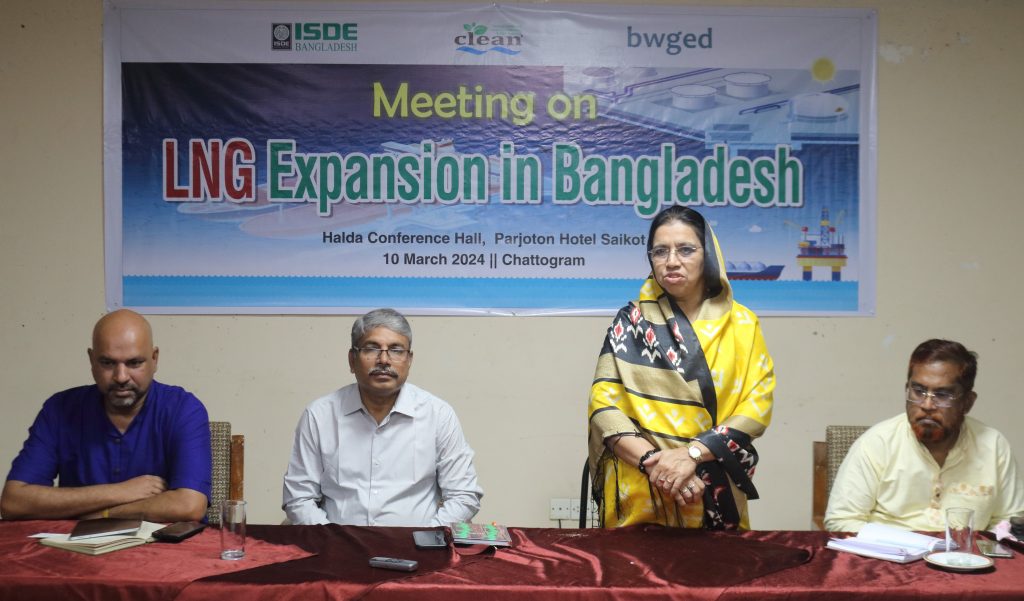Saturday 27 April, 2024
17 Mar 2024 | 12: 03 pm

A number of non-government organizations (NGOs) have demanded the government allocate funds to solar and wind power instead of LNG-run power plants and LNG terminals. The demand was made in a joint meeting of the ISDE-Bangladesh, Coastal Life and Environment Alliance (CLEAN) and Bangladesh Working Group on External Debt(BWGED) at Halda Conference Hall of Hotel Saikat in Chattagram on Sunday 10 March 2024. It was informed in the meeting that annually about Tk 55,000 crore is spent to import LNG for power generation.
The government approved 11 more LNG power plants in the last four years despite gas shortages in operating plants. Of these, four are under construction and seven are awaiting construction.
Currently, per cubic meter of LNG import costs Tk 79.33 while it is being sold to the power sector at Tk 14.75. As a result, the loss per cubic meter is Tk 64.58. If LNG cannot be supplied, the power plants under construction will sit idle. Even if there is no electricity, the government has to pay the capacity charge. In the financial year 2022-23, private power producers had to be paid Tk 17,650 crore capacity charges. With the increase in idle power plants, the capacity charge is also increasing exponentially.

It was informed in the meeting that annually about Tk 55,000 crore is spent to import LNG for power generation. The government approved 11 more LNG power plants in the last four years despite gas shortages in operating plants. Of these, four are under construction and seven are awaiting construction.
Currently, per cubic meter of LNG import costs Tk 79.33 while it is being sold to the power sector at Tk 14.75. As a result, the loss per cubic meter is Tk 64.58.
If LNG cannot be supplied, the power plants under construction will sit idle. Even if there is no electricity, the government has to pay the capacity charge. In the financial year 2022-23, private power producers had to be paid Tk 17,650 crore capacity charges. With the increase in idle power plants, the capacity charge is also increasing exponentially.

With Consumers Association of Bangladesh (CAB) Central Committee Vice President S M Nazer Hossain in the chair, the meeting was addressed by Hasan Mehdi, Mahbubul Alam Prince, Bahlul Alam, Jasmine Sultana Paru, Abida Azad, Kazi Iqbal Bahar Chhaberi, Rezia Begum, and Helal Uddin Mahbub.
The NGO leaders said that after the Russia-Ukraine war and the geopolitical crisis in the Middle East, the supply of LNG and petroleum is becoming increasingly difficult. In this situation, if new LNG terminals and LNG power plants are built, it can become a thorn in the neck of the country’s economy.
In addition, fuel imports of about $6 billion per year are putting unbearable pressure on foreign exchange reserves. With increasing pressure of energy import and capacity charges on the national budget, the allocation to the most essential sectors like agriculture, health, communication and education is decreasing, which is having a negative impact on overall public welfare and human resource development.
During production, transportation and consumption, LNG emits an average of 950 grams of carbon dioxide per unit of electricity generation, which is close to that of coal. On the other hand, generating electricity using solar or wind energy produces zero emissions. In addition, solar or wind power does not require any fuel to produce, which can save at least $2 billion per year. As capacity charge is not given in the renewable energy sector, the possibility of money laundering can also come down to zero.
The speakers also said that due to last year’s Cyclone Mokha, when the LNG terminal of Maheshkhali was damaged, gas supply to the entire country including Chittagong was stopped for 3 days. People’s livelihoods and industries were disrupted.
On the one hand, LNG has to be imported by spending a huge amount of foreign currency. Again, LNG is causing extreme environmental disaster in the fossil fuel sector of the country. This is causing serious damage to the country’s overall economy and environment. The speakers strongly demanded the government to immediately cancel the proposed LNG power plants and terminals and allocate an equal amount of funds for the solar and wind power sector.

© Copyright isdebd.com
Powered By Muktodhara Technology Limited